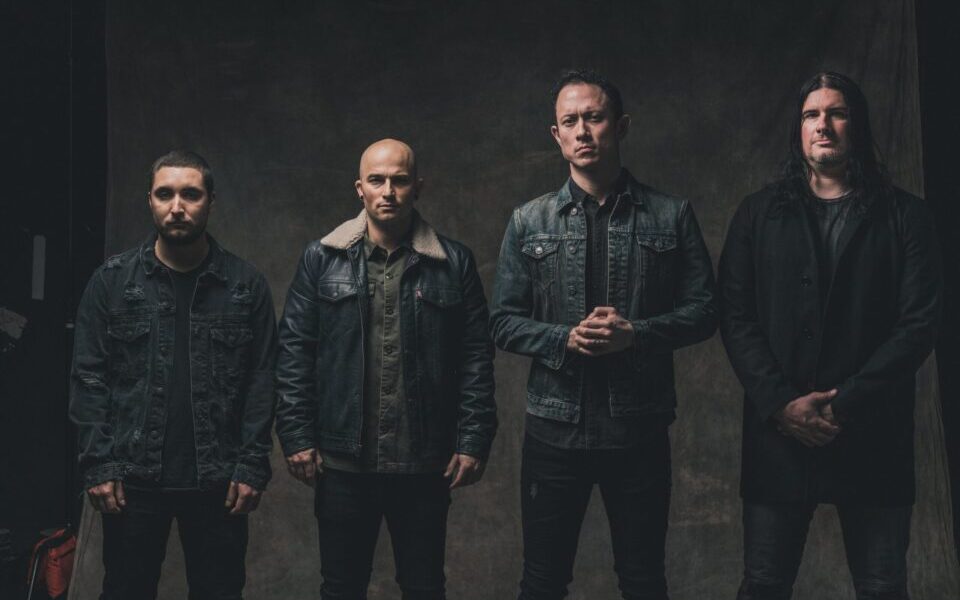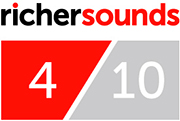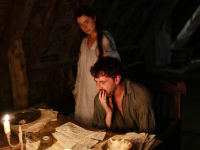
With an album cover that would feel at home on the front of any generic fantasy book or board game, Trivium have released In The Court of The Dragon. Having sat under the massive canopy of ‘heavy metal’ the band’s sound has evolved and changed since their inception in the late 90’s. But how will this return to some of their fantastical themes fare?
If you were a teen in the nineties, noughties or even the ten’s (am I saying that right?) who tried to grow their hair out, dressed in mostly darker clothes and ever picked up an electric guitar, there’s a solid chance you will have come across Trivium at some point. Also I’m unashamedly using myself as a benchmark for that stereotype – so direct all complaints in that direction.
With a string of influences as long as their combined discography track listing, Trivium are perhaps one of the go-to bands for heavy metal. Capable of bridging the gaps between more melodic death, power and thrash metals, all stitched together relatively distinct duelling guitars and double-pedal drums – and most importantly the presence of Matt Heafy.
The new album opens strangely, with an almost soundtrack suitable track, X. If the album had continued on from this avant-garde, melodic track as a genuine jumping off point, it may have fit better. Instead it lurches us directly into the title track.
In The Court Of The Dragon however, doesn’t take the fantasy approach you may expect. With less sweeping melodies and solos like a dragon’s wings, and more akin to the galloping of a horse with speed-picking and blastbeat drums. Ironically, some of the sweeping arpeggios, of which there are too few, are similar to DragonForce – another voice in the more fantastical side of metal.
Like A Sword Over Damocles, the following track is more of the same. Again, it still feels a slightly jumbled mix of screaming, gravelly vocals alongside thrashing guitar, but occasionally spiked with some more melodic refrains – if only a moment, before hurling the listener directly into a wheeling solo. It’s a decent track overall, but this reviewer at least prefers to have a rough idea of the album’s direction by this point.
For an album that seems to promise an almost novel-like structure – it can’t quite deliver. Each track seems to feel very similar, with very little to distinguish them from one to the next. However, unlike feeling like a flowing story from chapter to chapter, it feels disjointed and chaotic.
That’s not to say there aren’t some decent, or even standout tracks on the album, there’s a couple tucked away. Feast Of Fire feels like it holds enough of a fantasy edge to be more distinct, without losing the ‘Trivium’ sound of the track. There’s some less distorted guitar, instead favouring overdrive for the powerful picked riff that shows up throughout the track – an actual rhythm as opposed to simply smashing away a double-pedal shows up for the drums and the vocals are melodic as opposed to just growls.
Perhaps tellingly, the most impressive track to this reviewer at least, is The Shadow Of The Abattoir. With it’s seriously macabre name you may be expecting nothing but grinding death metal. However, the 7:11 long track is a stunning blend of roared vocals, soft melodies, understated strummed chords and picked rhythms all the way through to Yngwie Malmsteen (God of fantasy metal and disgustingly complex guitar arpeggios) reminiscent solos and sweeps.
Yes, I’m aware it sounds as jumbled and confusing as what I’ve been complaining about on other tracks not 30 minutes earlier in the running order – but the structure of this is actually present, seemingly unlike the others.
Sadly however, one outstanding track that fits what the album is touted as isn’t enough to save it. As the album leads out, there’s two more decent, but unexceptional tracks from Dawn To Decadence and The Phalanx – but neither are memorable enough to earn an honourable mention, much like the album overall.

Author: Steve, Cardiff store





